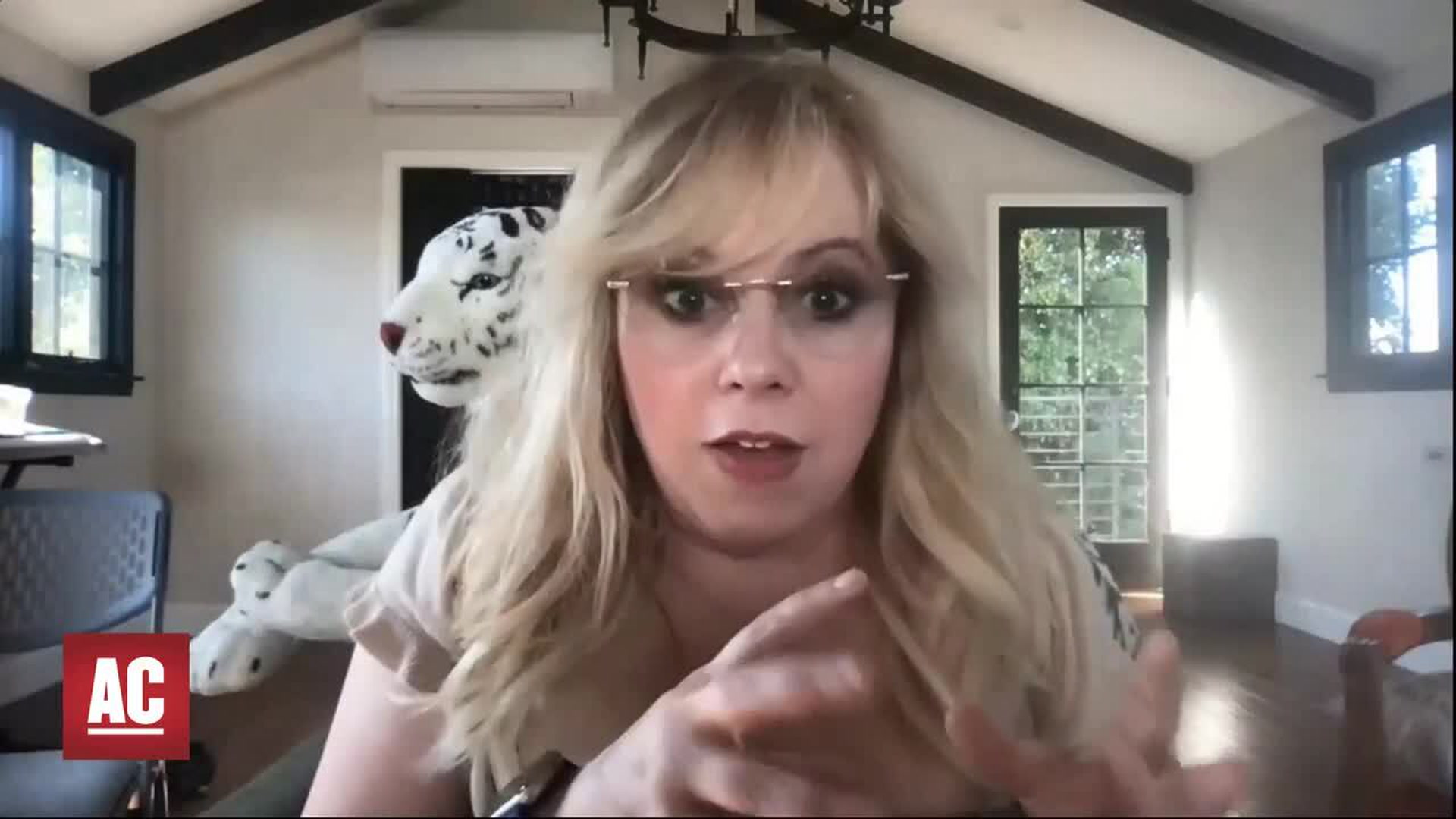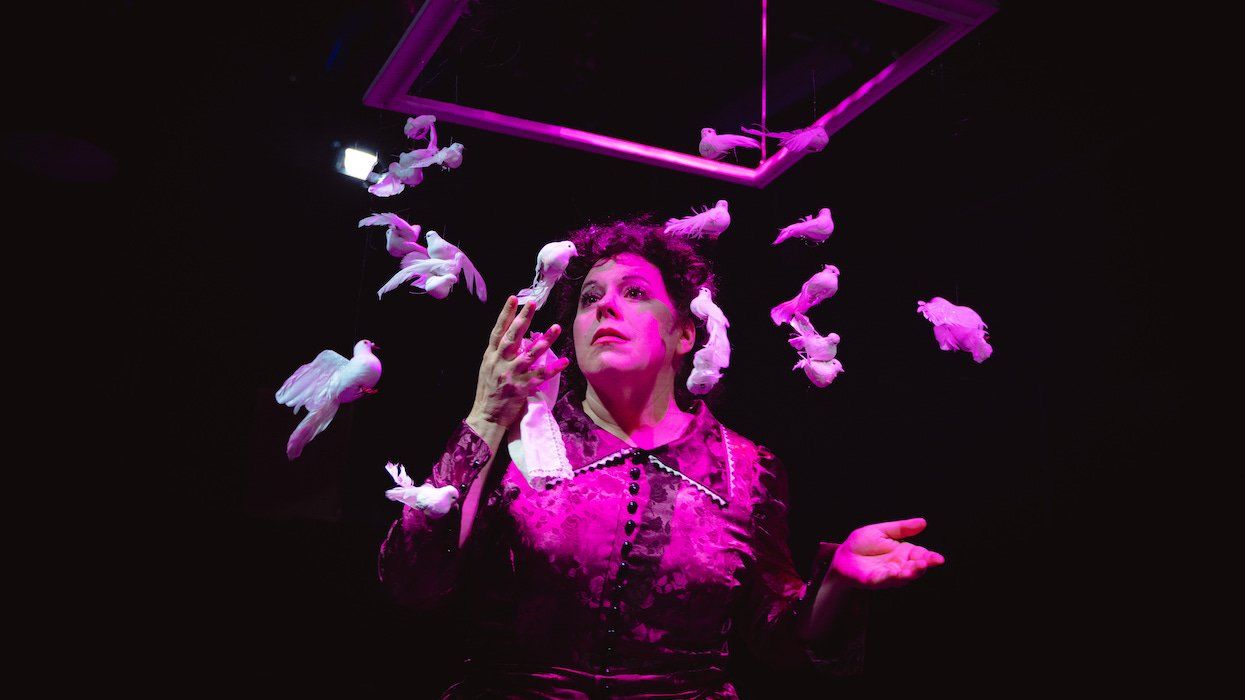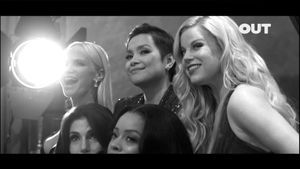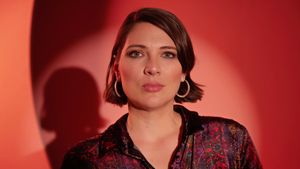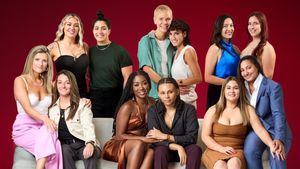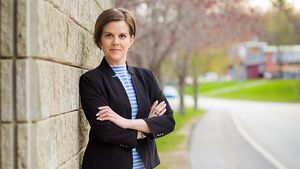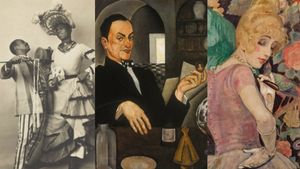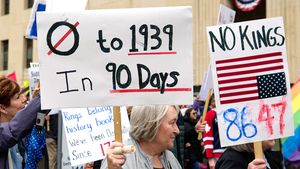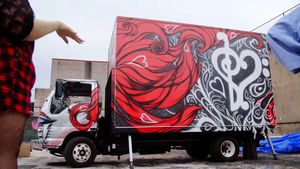The story of Lizzie Borden, the Massachusetts woman who “gave her mother 40 whacks” with an ax, according to the grisly rhyme, gets a queer, camp interpretation in playwright Justin Elizabeth Sayre’s Lottie Platchett Took a Hatchet. Fresh off a run at the Los Angeles LGBT Center with Criminal Minds star Kirsten Vangsness in the titular role, Sayre hopes to take the show to New York City.
It's not the first time Lizzie Borden has gotten a queer interpretation. Chloe Sevigny produced and starred in the dark horror tale Lizzie, in which her Lizzie had an intense affair with the family maid, played by Kristen Stewart. But Sayre’s take is a searing satire that takes aim at religious institutions, the treatment of women as hysterical, and the anti-immigrant sentiment of the era.
“There are so many layers to what both Lizzie Borden represents and also what went on in the cases. There’s this kind of very strong anti-immigrant feeling that was held up in the press and held up in the trial. And as mostly an Irish mutt myself, I thought, Oh, that's fascinating. Wouldn’t that be interesting to do?” Sayre says.
“Also, there’s been a reckoning around female bodily autonomy. And I wondered what it would be like to take this kind of female antihero and deal with not only her body autonomy but how women were treated in that period and also kind of draw questions about how women are treated in our period,” Sayre adds.
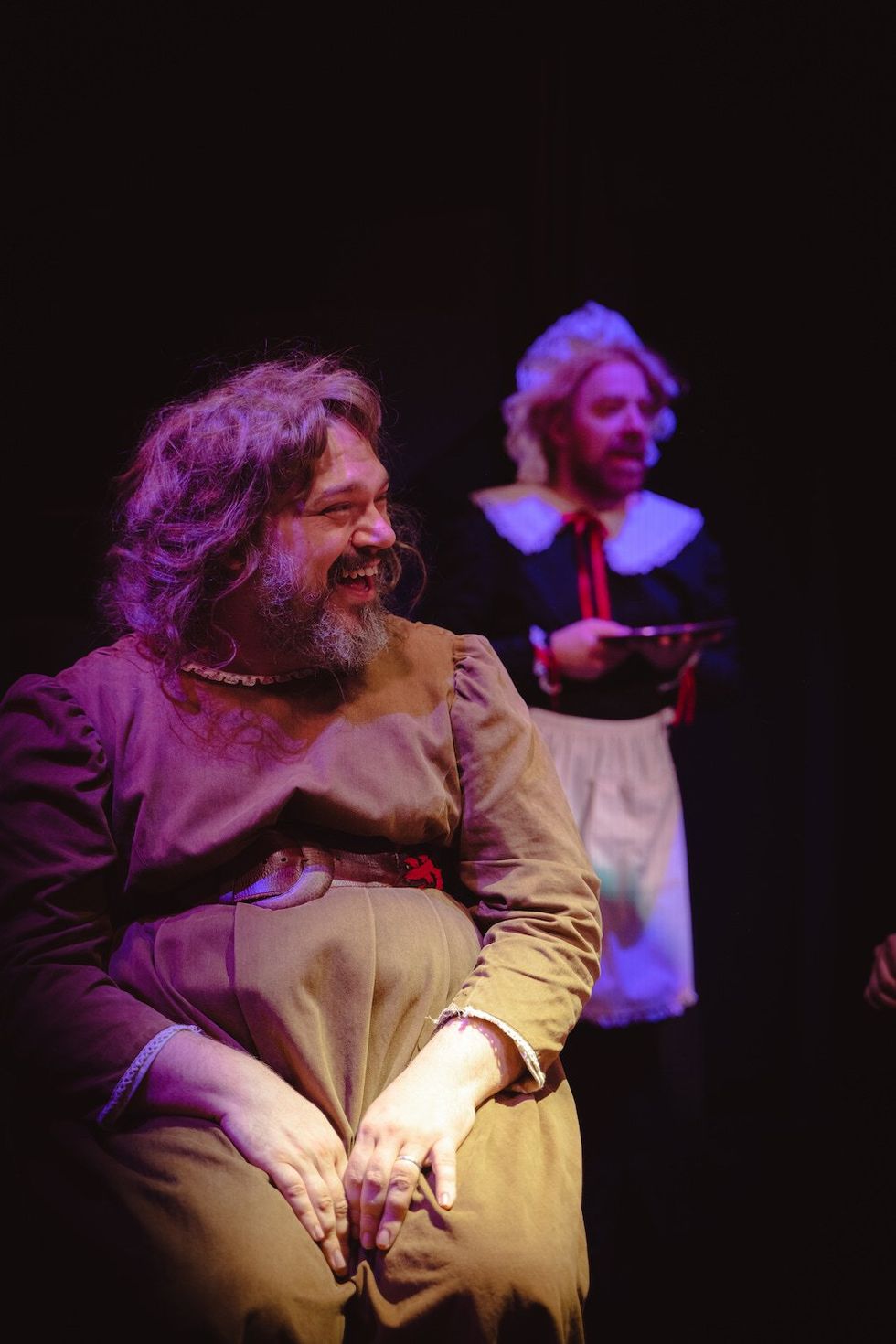
Directed by Jessica Hanna, Lottie Platchett also features Ryan W. Garcia as Lottie’s louche father Josiah, Sayre as her stepmother, Barfa (full beard and all), and Tom Lenk as her brother Pansy (who is as implied by the name — gay). Tom Detrinis plays the put-upon Irish maid, Molly.
For Vangsness, the satirical campy nature and unabashed queerness of Lottie Platchett (in the vein of greats like Charles Busch’s Die Mommy Die and Charles Ludlam’s The Mystery of Irma Vep) drew her to the material.
"What’s cool about this play is that it really spins [preconceived gender notions]. Patriarchy is not like, Oh, the woman is in charge and everybody's below her, and the feminine bent,” Vangsness says. “The queer way of doing things is in community. The way this play is written, the way it was rehearsed, the way my fellow actors are, the way it just is, it’s very community matriarchal."
“The whole thing is so deliciously queer. So many times I sat in rehearsal and looked around to be like, This is what the Republicans are afraid of. And this is everything I want,” she adds. “It’s so wholesome and strange in its own beautiful, queer, crazy way. It's been such a joy and it's so cathartic.
Watch the Advocate Channel’s full interview with Vangness and Sayre below.
